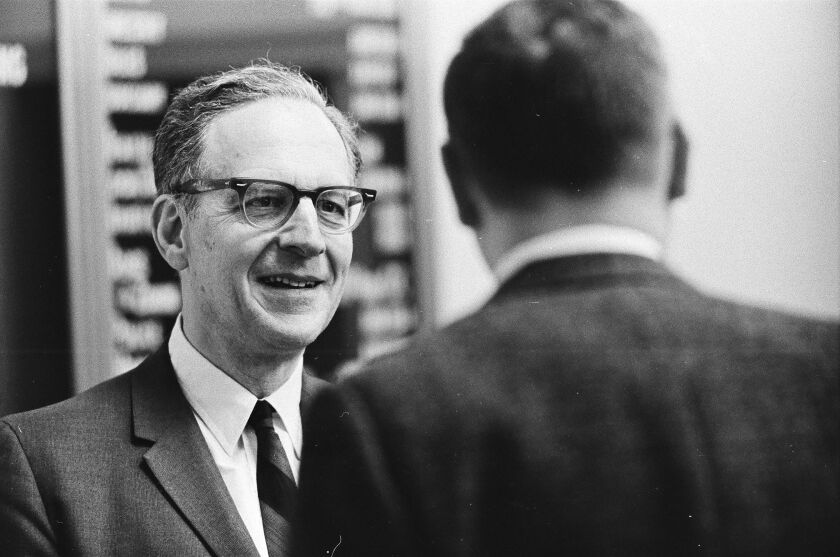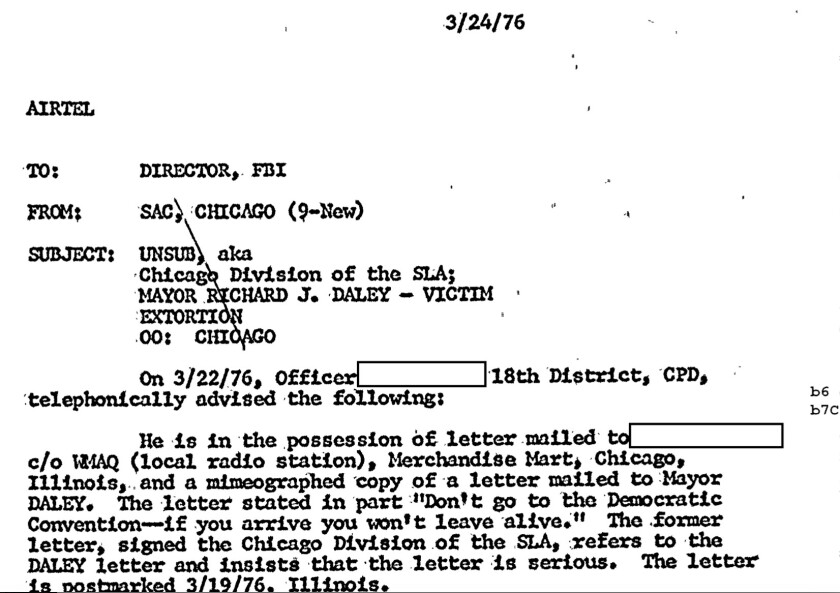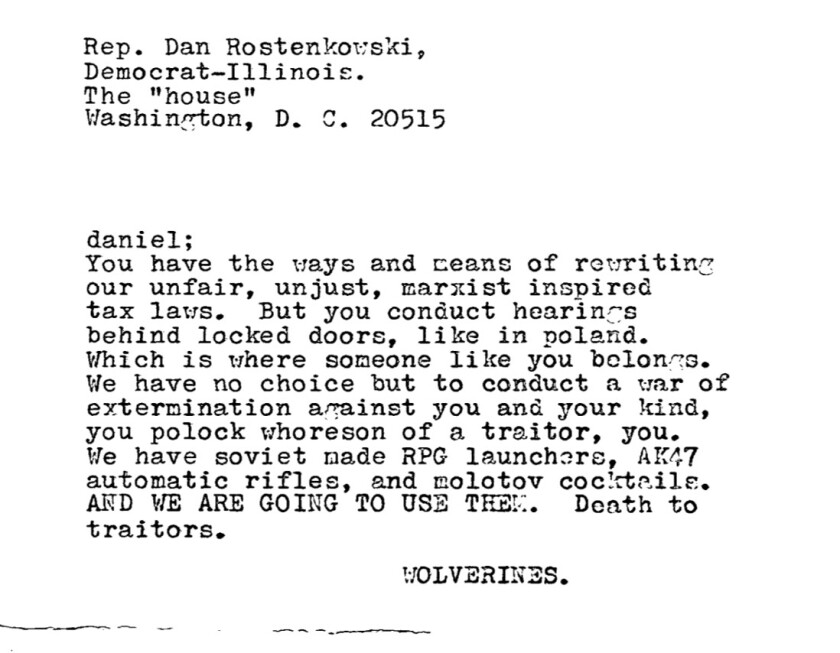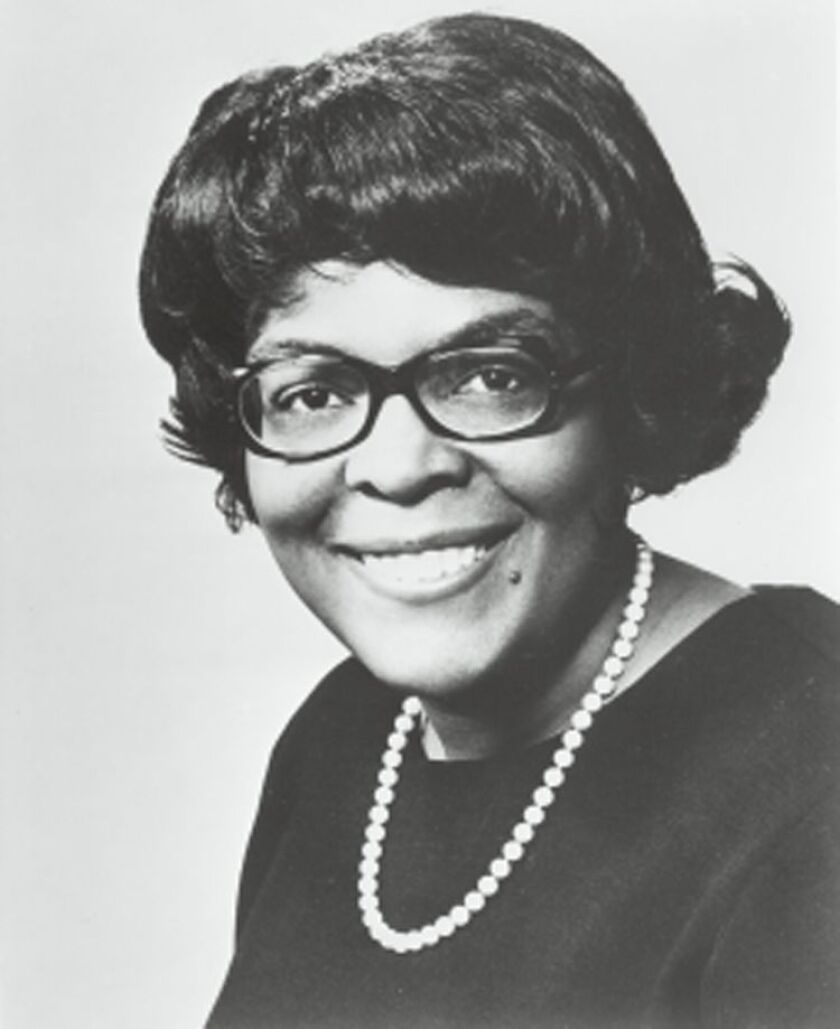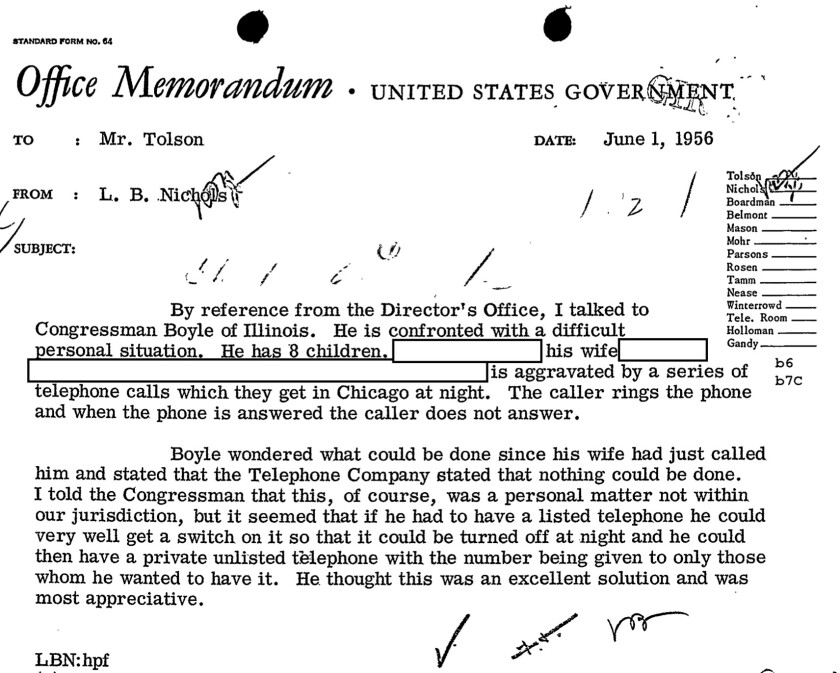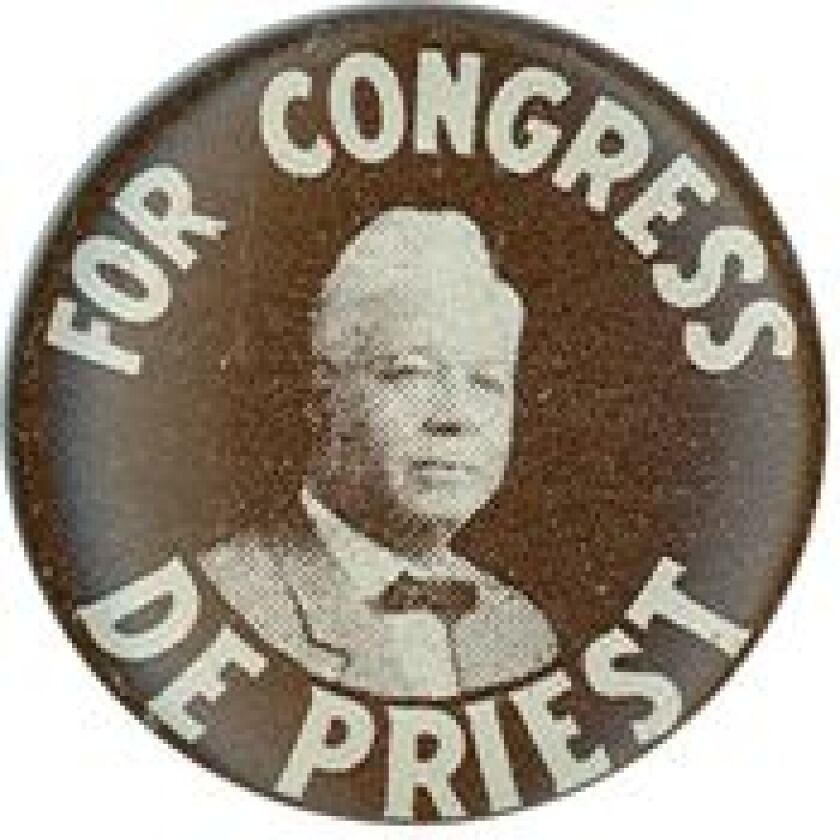Dealing with angry citizens, even death threats, has been a part of life for Chicago-area political figures for decades, according to the records, which the Sun-Times has compiled for a new portal showcasing FBI files on notable people, events and groups with Chicago or Illinois ties.
The themes of the ire that’s been directed at politicians have centered on issues such as race, patriotism and gun control, according to the FBI files, gathered through a series of public records requests and the agency’s online “Vault.”
One target was the late Ald. Leon Despres, who represented the South Side’s fifth ward from 1955 to 1975. Despres, who died at 101 in 2009, was an old-school, Hyde Park liberal and frequent and vocal critic of the Democratic political machine and Mayor Richard J. Daley.
In 1968, Despres was sent a handwritten note, signed “The Minute Men,” that warned: “Your days are numbered the day that communistic gun bill is enacted.”
As the FBI records explain, Daley was pushing “a local ordinance concerning the registration of firearms in the possession of residents of Chicago” at the time that “has been the subject of much controversy.”
The late mayor was the target of an ominous-sounding threat himself. A letter sent to a radio station in 1976 and turned over to the authorities warned Daley: “Don’t go to the Democratic Convention — if you arrive you won’t leave alive.’ ”
The Democratic national convention that year, which nominated Jimmy Carter for president, was held in New York. Daley attended. He died months later of natural causes.
Police concluded that the letter was “a prank and therefore cannot be construed as a criminal offense,” the FBI files show.
In the mid-1980s, then-U.S. Rep. Dan Rostenkowski, a Chicago Democrat, received a threatening note ripping his leadership of the powerful House Ways and Means Committee.
Rostenkowski, who later spent time in prison for a corruption scandal and died in 2010, was told that he holds hearings “behind locked doors, like in Poland. Which is where someone like you belongs. We have no choice but to conduct a war of extermination against you and your kind.”
The letter goes on to colorfully combine an ethnic slur and an insult to his mother in labeling him a “traitor” and warn: “We have soviet made RPG launchers, AK47 automatic rifles, and molotov cocktails. AND WE ARE GOING TO USE THEM. Death to traitors.”
The letter was signed “Wolverines.”
A Florida man suspected of making that threat and others to members of Congress was arrested.
Years earlier, the staff of the late Adlai Stevenson II — who was governor of Illinois from 1949 to 1953 — told federal investigators Stevenson “usually does receive a large amount of crank letters and pays but little attention to them.”
Except for one postmarked April 12, 1951, that referred to Gen. Douglas MacArthur and the espionage scandal involving Alger Hiss and threatened: “You traitorous S.O.A.B. RESIGN AT ONCE, or prepare to die. Take your choice. Your attitude regarding Hiss, and your remarks regarding McArthur (sic) show you are a TRAITOR.”
Stevenson’s FBI files note that the same “crank may also be writing threatening notes to President Truman.”
Years later, while serving as the U.S. ambassador to the United Nations, Stevenson got a letter that called him and then-President Lyndon Johnson “gangsters and war mongers” who are “going to get it.”
Stevenson’s son and namesake was a Democratic U.S. senator from Illinois from 1970 to 1981, and his office staff would compete in a softball game against the staff of Charles Percy, the Republican U.S. senator from Illinois. After a game played in 1974 in Washington, D.C., “When Senator Percy returned to the car with REDACTED he found a note in the vehicle,” according to Percy’s FBI files. “The note contains implied or possible threat against the Senator and REDACTED.”
That same year, Percy’s office got a call from a man who said the senator “is going to be blown up unless you leave $50,000 in the Greyhound Bus Station,” the records show.
After the man was arrested, he told police there’d been no bomb, that he was “attempting to get some money” and also that he’d consumed “some drinks prior to making the call.”
A few years later, the late U.S. Rep. Cardiss Collins, who was the first African American woman to represent an Illinois district in Congress, got a call from someone from Louisiana who “stated he had something to do with the murder of Martin Luther King Jr.” and wanted to meet her “to give himself up,” according to Collins’ FBI files. “He then stated if Collins did not follow these orders he would kill her also.”
In the 1980s, then-Chicago Mayor Eugene Sawyer was the victim of a “murder for hire” scheme, though what was released in his heavily redacted FBI files doesn’t shed any light on what that entailed.
In 1956, U.S. Rep. Charles Boyle, a North Side congressman, faced a seemingly less dire concern, as detailed by his FBI records: “He is confronted with a difficult personal situation. He has 8 children . . . his wife . . . is aggravated by a series of telephone calls which they get in Chicago at night. The caller rings the phone and when the phone is answered the caller does not answer.”
“Boyle wondered what could be done since his wife had just called him and stated that the Telephone Company stated that nothing could be done. I told the Congressman that this, of course, was a personal matter not within our jurisdiction, but it seemed that if he had to have a listed telephone he could very well get a switch on it so that it could be turned off at night and he could then have a private unlisted telephone with the number being given to only those whom he wanted to have it. He thought this was an excellent solution and was most appreciative.”
Another Chicago-area congressman, Oscar De Priest, served from 1929 to 1935 and was “the first African American elected to Congress in the 20th century,” according to a biography that said his election “marked a new era of black political organization in urban areas.” In 1930, De Priest’s FBI files show he got an ominous-sounding letter, purportedly sent by the “K.K.K.”
De Priest wrote to J. Edgar Hoover, who then was running the FBI’s predecessor agency and was put in charge of the FBI when it was created: “Any consideration or investigation given this matter will be appreciated by me.”
In 1962, an anonymous letter to a downstate newspaper targeted U.S. Rep. Sidney Yates, complaining that he was “a Jewish communist from the University of Chicago,” according to the longtime Chicago congressman’s FBI files.
Concerns about politicians being a communist weren’t unusual — in Despres’ case, it was the FBI itself that raised that concern. The longtime Chicago City Council member’s FBI records are filled with questions about whether he was a secret communist, something the FBI investigated more than once before he became an alderman in 1954 and apparently also after he was elected.
The FBI records also took note of Despres getting shot and wounded, though politics had nothing to do with that. He appeared to have been a victim of a “robbery attempt,” the records show.
